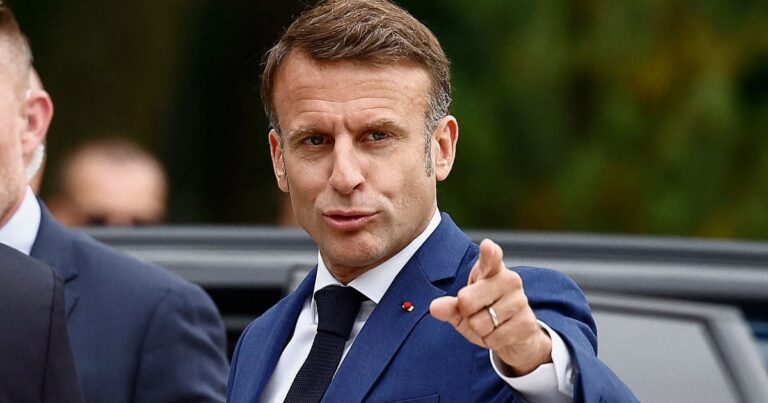PARIS: France held the first round of surprise parliamentary elections on Sunday, with opinion polls predicting the far-right National Rally party could win even if it does not win an absolute majority.
What will happen if that happens, and can political paralysis be avoided after the second round of voting, scheduled for July 7?
Short answer: No one knows for sure.
Article 8 of the constitution provides that the president appoints the prime minister, but does not specify what criteria should be used.
In reality, President Emmanuel Macron is expected to offer the prime ministerial post to a leading group in parliament, which opinion polls suggest will be the eurosceptic, anti-immigration National Rally (RN) party.
RN Chief Bardella to become Prime Minister?
The RN has said its leader, Jordan Bardella, is its candidate for prime minister, but has also said he will step down if the party and its allies do not win an absolute majority of at least 289 seats.
The constitution does not stipulate how the prime minister should be chosen, so Macron could theoretically form an anti-RN coalition and offer the prime ministerial position to another party, or someone with no political affiliation.
If not Bardella, then who?
The Constitution does not provide a specific answer.
Options include:
– Trying to form a coalition of mainstream parties. Currently no such coalition exists, but Macron has urged parties to come together to exclude the far-right.
– If, as polls suggest, a coalition including the far-left, the Socialists and the Greens emerges as the second-largest force, offer the post to the Left, which could then try to form a minority government.
Do any of these options work?
If the RN wins the majority of the vote and takes the prime ministerial seat, it will usher in a period of “coexistence” with Macron – a phenomenon that has happened three times in modern French political history, but always with a mainstream party – and the RN could struggle to get reforms passed.
If the RN is not in power, even though it is the largest party in parliament, it can block or amend government proposals. The constitution gives the government some means to get around this, but there are limitations.
If the RN wins a majority it will almost certainly gain the prime ministerial position, as it can use its power to force the resignation of any government it disagrees with.
What happens if no agreement is reached?
None of the three groups – the far right, the centre and the left – may be strong enough to govern alone, to forge a coalition deal or to have the guarantee that they can run a viable minority government.
That would put France at risk of political paralysis, with little or no legislation being passed and a caretaker government running basic day-to-day operations.
Will Macron resign?
Macron denies this, but it could be an option if all else fails. Neither parliament nor the government can force him to do so.
What would not happen under any scenario?
An immediate re-vote is not an option because the constitution means no new parliamentary elections can be held for one year.
What would not happen under any scenario?
France’s parliamentary elections are difficult to predict because there are 577 separate elections for each seat, and an unusually short campaign could mean results that differ from what the polls predict.
Published June 30, 2024 11:21 IST

